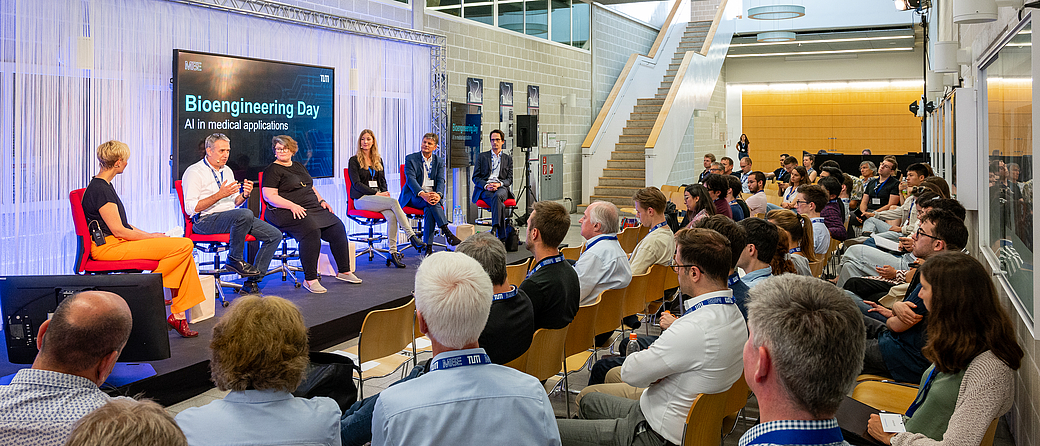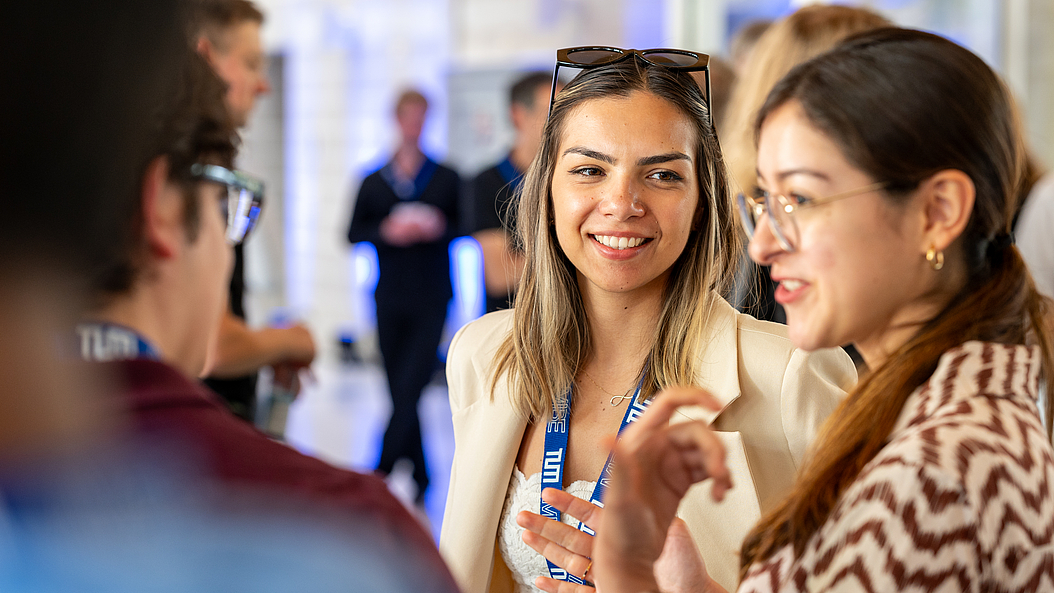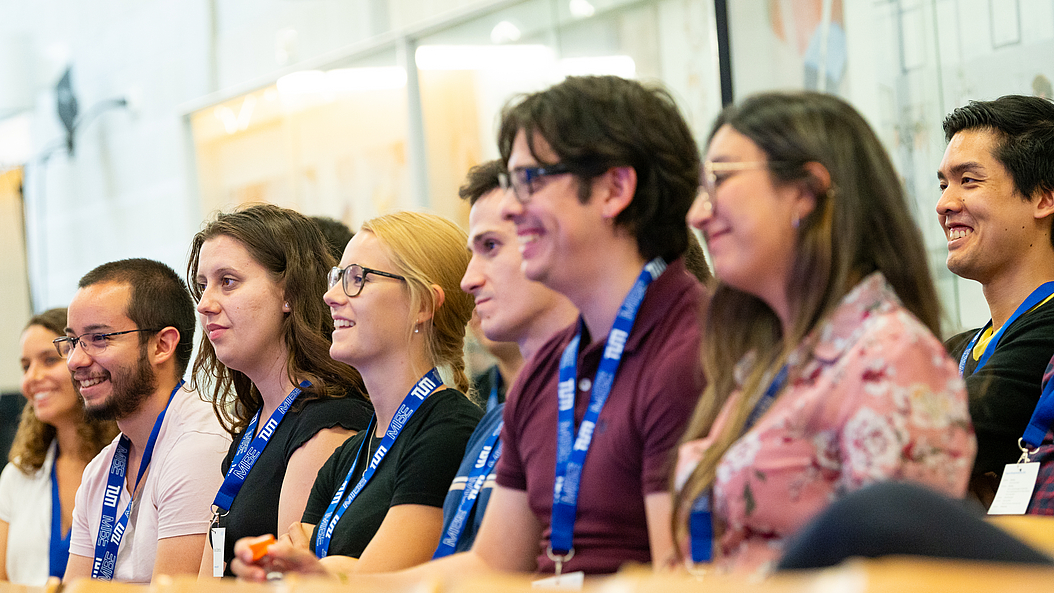What medical applications is artificial intelligence (AI) already being used for? Will AI replace radiologists? What are the most promising opportunities and how can risks be mitigated? Five experts from science, clinical practice and industry discussed these questions and more at this year's Bioengineering Day. The event took place on June 23rd at the Munich Institute of Biomedical Engineering (MIBE) of the Technical University of Munich (TUM) in Garching.
After the opening by Institute Director Prof. Franz Pfeiffer, the speakers presented exciting aspects of the development of AI in medicine. A brief journey through time from the first X-rays to precision medicine and future scenarios with digital twins was followed by a talk on the use of generative AI in the medical context - the "chat GPT moment in medicine". AI could, for example, predict the properties, structure, and function of new active ingredients and thus accelerate the time-consuming and expensive drug development process.
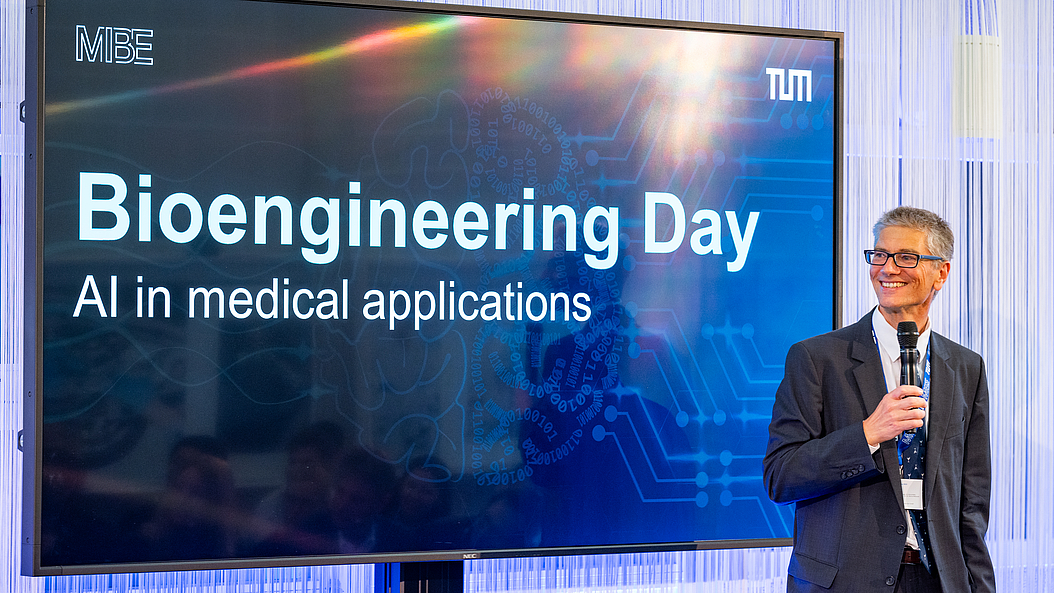
Image: Astrid Eckert / TUM
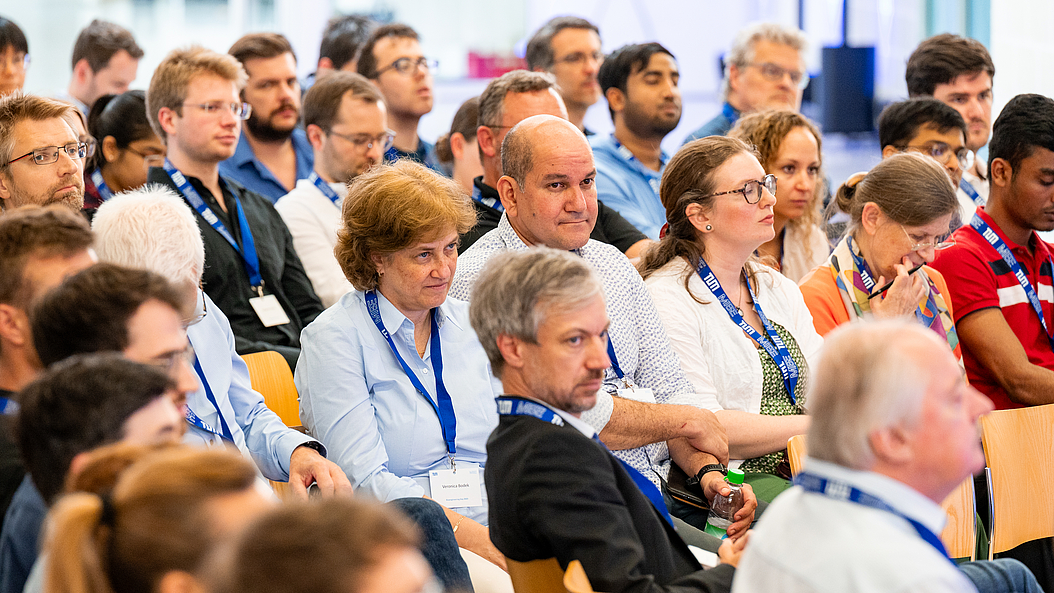
Image: Astrid Eckert / TUM
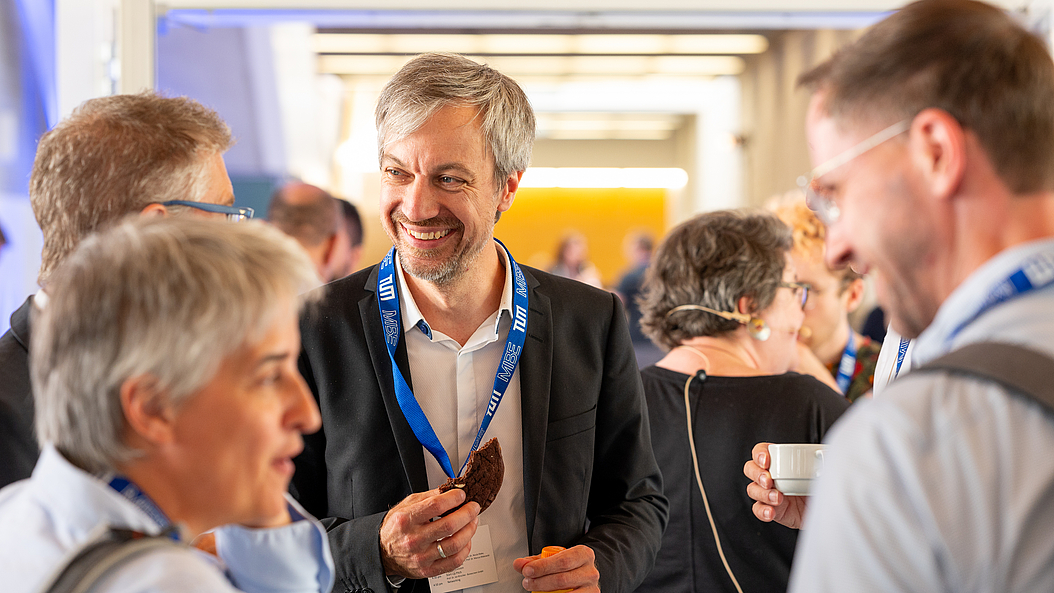
Image: Astrid Eckert / TUM
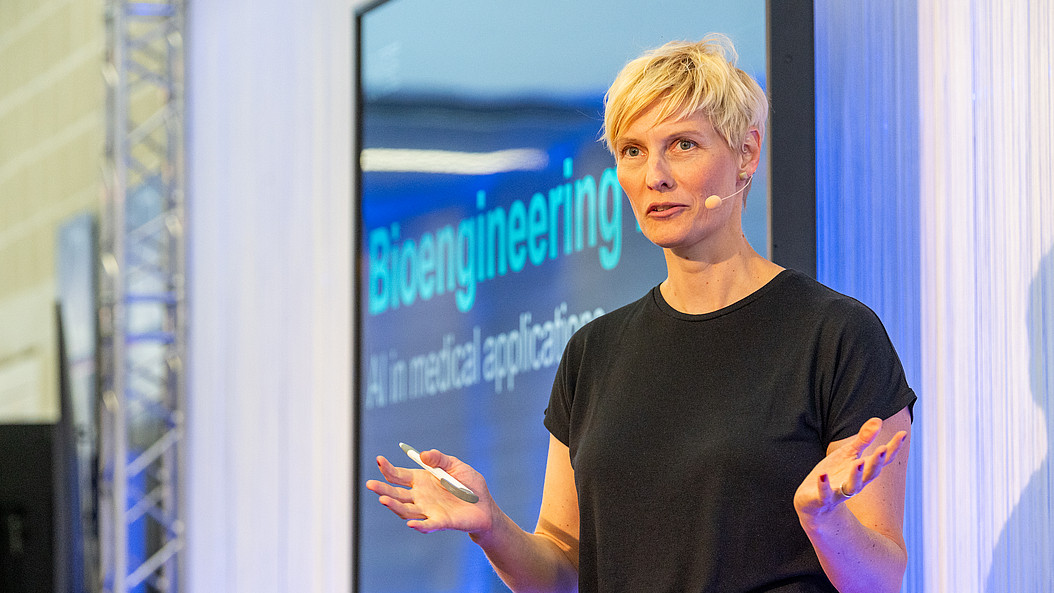
Image: Astrid Eckert / TUM
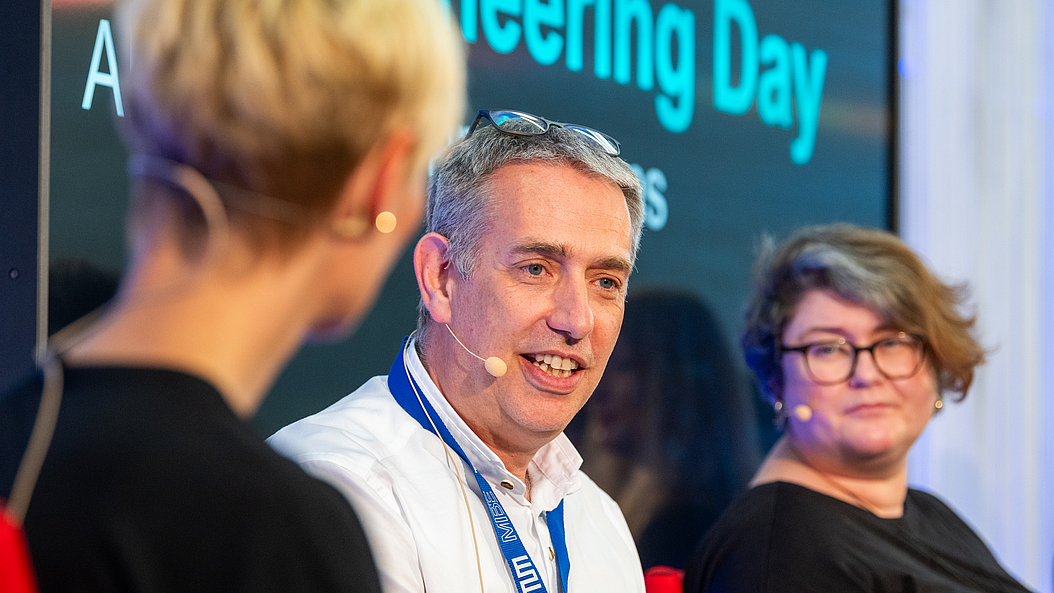
Bild: Astrid Eckert / TUM
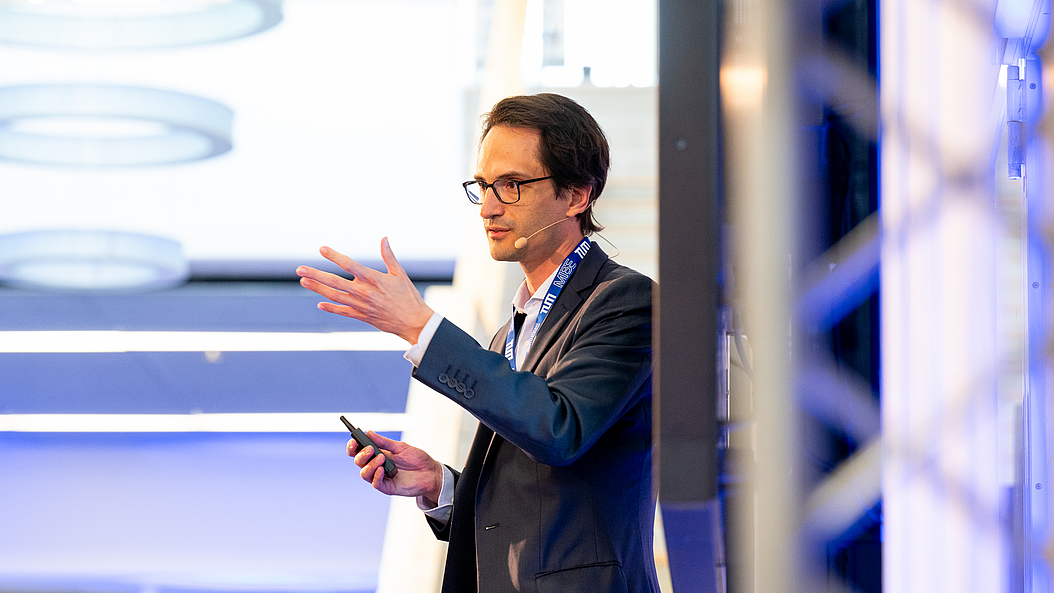
Image: Astrid Eckert / TUM
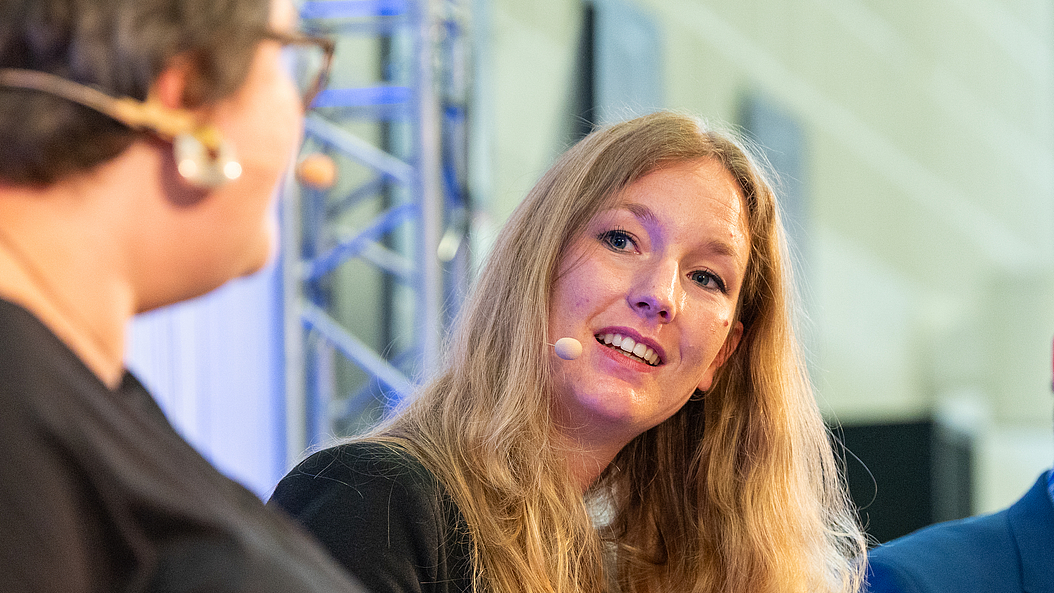
Image: Astrid Eckert / TUM
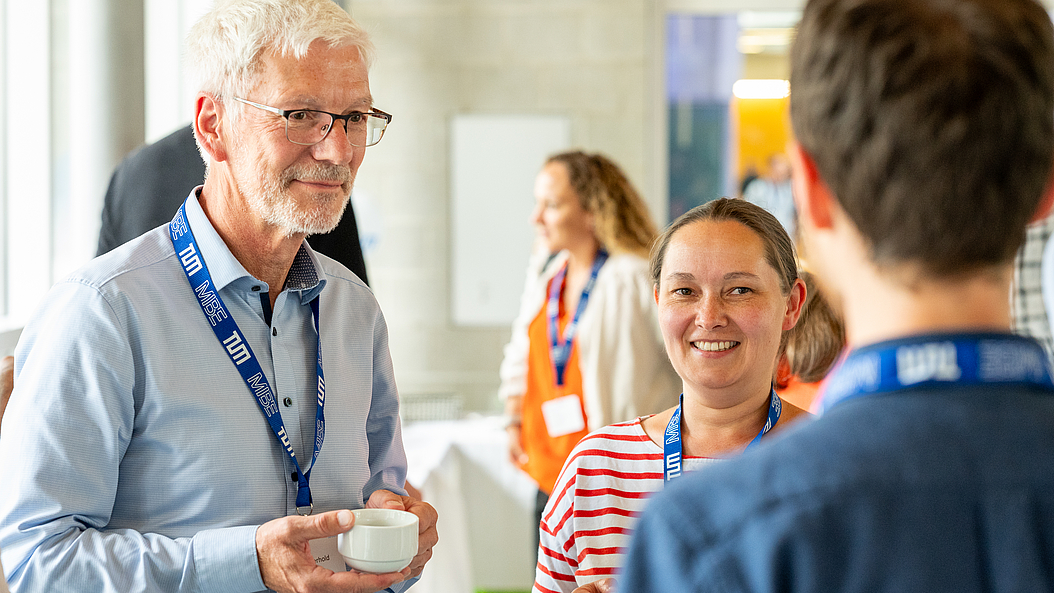
Image: Astrid Eckert / TUM
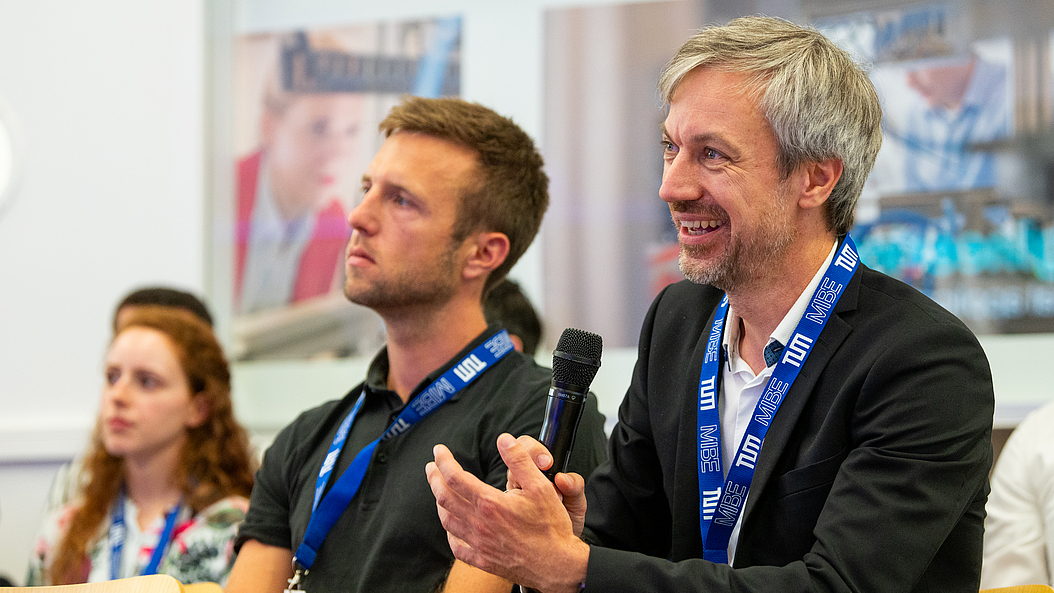
Image: Astrid Eckert / TUM
Radiology and clinical application
The next presentations focused on medical imaging. Whether in image acquisition, image processing or diagnostic support, AI holds enormous potential in this area. For example, if images in magnetic resonance imaging can be reconstructed from less data than before, this has a direct impact on patients. Patients have to spend less time in the MRI machine as a result.
Current challenges, on the other hand, include bias and fairness of the data on which the models are based. Also, the greater variability of data under real hospital conditions compared to training data is still a challenge. Interactions and feedback loops between individual steps in clinical processes could improve applications of AI for clinical practice.
Ethical responsibility in technology development
AI applications are still in their early stages, but are evolving rapidly. Taking responsibility in technological development and including social, ethical, and political dimensions from the start, was also a central topic of the event.
At TUM, there are so-called embedded ethics projects for this purpose. Medical ethicists, for example, work together with computer scientists and engineers on projects to integrate new potential ethical, social and political implications into the development of new technologies.
Panel discussion and insight into a TUM start-up
In the panel discussion, the experts addressed issues ranging from the skills required of graduates, international competition, responsibility and liability in AI-based medical applications, patient data, and areas where AI might soon be used in clinics.
The event was rounded off by an insight into a TUM start-up in the field of AI and medicine: Bonescreen is developing AI-based technology for osteoporosis screening using biomarkers in medical image data. At the end of the event, the participants exchanged ideas in a relaxed atmosphere with food and drinks.
More Information
Presentations:
- Prof. Dr. Joachim Hornegger
President, Friedrich-Alexander-Universität Erlangen-Nürnberg
"AI: A Game Changer in Medicine" - Dr. Nicola Rieke
NVIDIA, MICCAI Board Member
"Bringing medical AI to the point of care: challenges and opportunities" - Prof. Dr. Daniel Rückert
Chair of Artificial Intelligence in Healthcare and Medicine, TUM
"AI and the future of radiology" - Prof. Dr. Marcus Makowski
Professorship of Radiology
Director, Department of Diagnostic and Interventional Radiology, TUM University hospital Klinikum rechts der Isar
"From quantitative biomarkers / artificial intelligence to clinical translation in Radiology" - Prof. Ruth Müller
Chair of Science and Technology Policy, TUM
"AI in medicine – social, ethical and political challenges" - Prof. Dr. Jan Kirschke
CEO, Bonescreen GmbH
Managing Senior Physician, Department of Diagnostic and Interventional Radiology, TUM University hospital Klinikum rechts der Isar
Moderator: Dr. Christine Hutterer
Contact Media Relations
Media Relations MIBE
presse@bioengineering.tum.de
